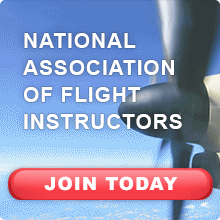Feeling Proud, You Should Be Too
Category: eMentor
Apr
14
| From NAFI's Chair |
Feeling Proud, You Should Be TooI'm taking a pretty amazing trip. Starting about 10 days ago, I traveled from Omaha to San Francisco to Honk Kong, then back to Omaha via San Francisco. As I write this, I'm in transit to Baltimore for the FAA sUAS symposium and plan to be back in Omaha by tomorrow evening. The trip will total about 19,280 air miles over 14 days and 19 pilots will fly the jetliners. OK, so what's the big deal, you might ask? Well, considering that roughly 100 years ago this trip would not even have been possible, and that it would have been an incredible undertaking back when I was born, I sit in amazement. Not so much anymore at the engineering or the technology. Those have become routine. We as a civilization have pretty much figured out air travel.
What amazes me is the training and the discipline that have gone into mastering the process. None of this happens without the professionals in all aspects of aviation, including the pilots, cabin crews, dispatchers, rampers, meteorologists, staff support, various regulatory bodies around the world, and on and on that go into enabling all of the technology to safely transport people and cargo rapidly and efficiently around the world.
Obviously, my bias is towards the flight instruction piece of the equation. As I look back on all of this, 19 individuals on the flight decks in 777ERs and 737s worked diligently to move me, my fellow passengers, and cabin crews all of those miles - without fanfare, without fuss. That takes training, both initial and recurrent.
These thoughts were triggered as I gazed upon an Airbus at a gate neighboring my flight's 777ER in Hong Kong. A young man I helped train in St. Louis is now based in Hong Kong and flies those very same Airbuses on intercontinental trips for one of the majors.
So it is with no small measure of pride that I say that I have and continue to contribute to this amazing infrastructure in my small way. Consider these musings when you next fly with a student, regardless of whether the lesson is an intro flight or the final prep for an advanced rating. And share the pride I feel.
Bob Meder,
NAFI Board Chair
|







